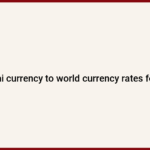
Illustration: Chen Xia/GT
In 1995, China’s share of global manufacturing was just 4 percent, while the US was five times bigger. Merely 15 years later, China surpassed the US to become the world’s manufacturing powerhouse, and has increased its dominance since then. The next frontier for China is the financial sector, which will involve formidable challenges such as transforming the Chinese yuan into an international currency. However, as Ray Dalio points out, the largest trading countries evolved into having the global financial center and the global reserve currency. Thus, history and logic are on the side of China.
Of course, detractors would point out that King Dollar still rules supreme and the yuan has relatively insignificant shares of the world’s reserve currencies and SWIFT transactions – less than 3 percent and less than 5 percent for each. Furthermore, the dollar supremacists enjoy pointing out that the yuan is not fully convertible and faces capital controls.
However, such parochial views disregard the bigger trends and alternative options for the internationalization of yuan.
Let’s start with the fact that the yuan has surpassed the US dollar to become the most used currency in China’s cross-border transactions. This is quite an astonishing development, since yuan’s share was little in 2010, but is now nearly 53 percent. In 2023, yuan-based cross-border receipts and payments amounted to a staggering ¥57 trillion. And 30 percent of goods traded by China are now bought and sold in RMB (yuan).
Recently, yuan also surpassed the Japanese yen to become the fourth most used currency in global payments. In trade finance, the yuan ranked third at about 5.1 percent in May, reported the CNBC citing SWIFT.
There are still many American “experts” – like Peter Zeihan – who claim that the yuan is a store of value for no one. These delusional China hawks should study how 95 percent of Russia-China trade is now conducted in yuan and rubles. The yuan has also become Russia’s primary foreign trade currency. Russians can even open up bank accounts in yuan now.
There are countless examples of countries around the world embracing yuan for trade – and this includes American allies like Australia, where companies are selling iron ore for yuan.
Ironically, the dollar’s extraordinary privilege will also be the primary cause for its demise. Because, in order for everyone in the world to have easy access to the dollar, the US prints trillions of dollars, and runs massive trade and fiscal deficits. Thus, the US created its own debt trap. Plus, the US has become so dependent on this rigged system that it must maintain a brutal empire to protect the dollar.
China does not want to repeat the American model. In fact, there are ways for yuan to become the dominant trade currency, without becoming the world’s reserve currency. For example:
China’s central bank (PBOC) has currency swap agreements with more than 40 countries and regions.
There are yuan-clearing banks in 20+ countries to facilitate trade in RMB.
CIPS – a potential alternative to SWIFT – was introduced in 2015 and now has 1400+ participants from 100+ countries.
Foreign companies and governments are borrowing in yuan through the so-called (onshore) panda bonds and (offshore) dim sum bonds.
Moving forward, digital currency-based systems will become more popular, as evidenced by the China-led mBridge project, which has Saudi Arabia and the UAE as members. This will allow countries to totally circumvent the US dollar, while increasing efficiency and reducing the cost of transactions. In the near future, Chinese e-commerce behemoths like Tencent, AliExpress, Shein and Temu will be using mBridge to serve customers all over the world.
Finally, let’s not forget the Belt and Road Initiative, the largest infrastructure and development project in human history. Loans in yuan can be used to build highways, railways, seaports, 5G network and so on.
China will continue opening up its financial sector. And Western financial firms are eagerly waiting to tap the abundant savings of Chinese families. One day, Shanghai will rival Wall Street and London, but it must be done gradually and prudently to avoid the traps of casino capitalism that has ruined the American economy. A modern financial system with Chinese characteristics is on the way. Get ready for exciting times.
The author is a geopolitical analyst, columnist, blogger, podcaster, and writer based out of Bangalore, India. His work can be found on Substack, X and more. opinion@globaltimes.com.cn





















